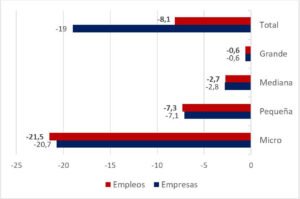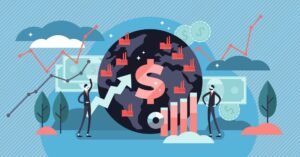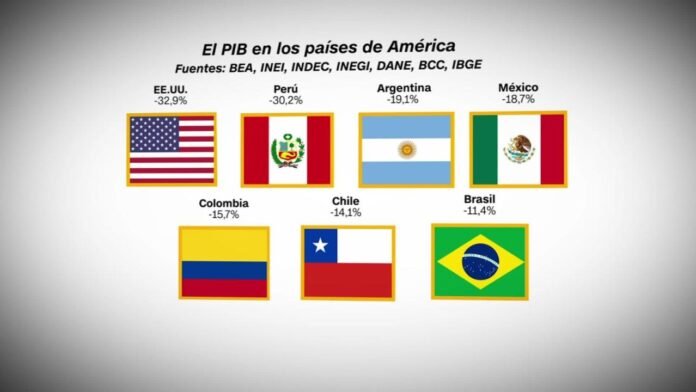The keyword “https://finanzasdomesticas.com/economias-mas-afectadas-por-covid-19/” means “economies most affected by COVID-19.” This pandemic changed everything for many countries. Some countries had a really hard time because of the virus.
COVID-19 made it hard for people to work and businesses to stay open. This meant less money for everyone. Let’s learn more about how different economies were hurt by the pandemic.
What Does “https://finanzasdomesticas.com/economias-mas-afectadas-por-covid-19/” Mean?
The keyword “economias-mas-afectadas-por-covid-19/” means “economies most affected by COVID-19” in Spanish. It tells us which countries and their economies had the hardest time during the pandemic. These economies faced big problems because of the virus.
Many countries had to shut down businesses to stop the virus from spreading. This meant people couldn’t go to work, and companies made less money. It was a tough time for everyone, and some economies were hurt more than others.
Governments tried to help by giving money to people and businesses. They wanted to keep the economy going and help people who lost their jobs. Despite their efforts, many economies still struggled a lot.
How COVID-19 Changed Economies
COVID-19 changed economies in many ways. First, it made many people stay at home to stay safe from the virus. This meant they couldn’t go to work, which hurt businesses a lot. Companies lost money because they didn’t have customers.
Secondly, travel was stopped in many places. Airports, hotels, and restaurants had fewer people visiting them. This meant they couldn’t make money and had to close down or lay off workers. The tourism industry was one of the most affected.
Lastly, supply chains were disrupted. This means that products and materials couldn’t get to where they were needed. Factories had to stop working because they didn’t have the parts they needed. This made the economy slow down even more.

Why Some Economies Suffered More
Some economies suffered more than others because of COVID-19. Countries that relied a lot on tourism, like Spain and Italy, were hit hard. With no tourists visiting, many businesses had to close. This caused a lot of people to lose their jobs.
Other countries had weak healthcare systems. They couldn’t handle the large number of sick people. This made the situation worse, and more people couldn’t go to work. The economies in these countries struggled to keep going.
In addition, countries with less money in their budgets had a tough time. They couldn’t give as much help to people and businesses. This meant that their economies took longer to recover from the effects of the pandemic.
“https://finanzasdomesticas.com/economias-mas-afectadas-por-covid-19/”: Examples from Around the World
Spain is one example of “economias-mas-afectadas-por-covid-19/.” The country depends a lot on tourism. When travel stopped, many hotels, restaurants, and shops had no customers. This caused a big economic problem.
Italy is another country that faced challenges. It also relies on tourism and had a high number of COVID-19 cases. The healthcare system was overwhelmed, and many businesses suffered. People were out of work and needed help.
India is a country with a large population and many small businesses. The lockdowns affected millions of workers who couldn’t earn money. The economy slowed down a lot, and many people struggled to meet their daily needs.
How Lockdowns Hurt Businesses
Lockdowns were necessary to stop the virus, but they hurt businesses a lot. Shops and restaurants had to close their doors. This meant they couldn’t make money and had to lay off employees. Many small businesses couldn’t survive the long closures.
Factories also had to stop production. Workers couldn’t come in, and there were no materials to work with. This caused delays and shortages in products. The economy slowed down because businesses couldn’t operate normally.
Many businesses tried to move online to keep going. However, not all could do this easily. Small shops and local businesses found it hard to set up online stores. Even with online sales, they couldn’t make as much money as before.
Job Losses and “https://finanzasdomesticas.com/economias-mas-afectadas-por-covid-19/”
Job losses were a big problem in the “https://finanzasdomesticas.com/economias-mas-afectadas-por-covid-19/.” Many people lost their jobs because businesses closed. With no income, families struggled to pay bills and buy food. This created a lot of stress and hardship.
Governments tried to help by providing unemployment benefits. They gave money to people who lost their jobs to help them survive. However, this wasn’t enough to make up for the lost income and economic slowdown.
Some people found new jobs in different fields. For example, some moved from tourism to delivery services. While this helped a bit, it didn’t fully solve the problem. Many economies continued to suffer because there weren’t enough jobs for everyone.
Government Help and Economic Recovery
Governments around the world took steps to help the “https://finanzasdomesticas.com/economias-mas-afectadas-por-covid-19/.” They provided financial aid to businesses to keep them open. This included loans and grants to help cover costs and pay employees.
Stimulus packages were given to boost the economy. These packages included money for people to spend, which helped businesses. The idea was to get people buying things again and support the economy.
Vaccination programs were also crucial. By getting people vaccinated, governments aimed to stop the virus. This allowed businesses to reopen safely and get back to normal. The recovery process took time, but these steps were essential.
Lessons Learned from “https://finanzasdomesticas.com/economias-mas-afectadas-por-covid-19/”
The pandemic taught us many lessons about “https://finanzasdomesticas.com/economias-mas-afectadas-por-covid-19/.” One important lesson is the need for strong healthcare systems. Countries with good healthcare handled the crisis better and recovered faster.
Another lesson is the importance of saving money. Both governments and individuals need to have savings for emergencies. This helps them survive tough times without falling into financial trouble.
Lastly, the pandemic showed us the value of being adaptable. Businesses that could quickly change to new ways of working did better. For example, those that moved online or offered delivery services survived more easily.
Comparing Different Economies During COVID-19
Different economies faced unique challenges during COVID-19. Developed countries like the US and UK had more resources to fight the virus. They could provide more help to businesses and people, making their recovery faster.
Developing countries had a tougher time. They lacked the resources to support their economies fully. This led to longer periods of struggle and slower recovery. The gap between rich and poor countries became more noticeable.
Countries with diverse economies managed better. Those that relied on various industries had more stability. For example, countries with strong agriculture, manufacturing, and services sectors didn’t suffer as much as those relying on just one industry.

How People Coped with Economic Problems
People found different ways to cope with the economic problems caused by COVID-19. Some started new businesses from home. They used their skills to offer services or make products that people needed during the pandemic.
Others took up part-time or gig jobs. They worked as delivery drivers, tutors, or freelance workers. These jobs helped them earn some money while traditional jobs were unavailable.
Many people learned to budget better. They cut down on unnecessary spending and focused on essentials. This helped them manage their money during the tough times and survive the economic challenges.
The Future After “https://finanzasdomesticas.com/economias-mas-afectadas-por-covid-19/”
The future after the “https://finanzasdomesticas.com/economias-mas-afectadas-por-covid-19/” looks hopeful but challenging. Economies are slowly recovering as businesses reopen and people get back to work. Vaccinations are helping to control the virus, making it safer to return to normal life.
Governments are planning for long-term recovery. They are investing in infrastructure and creating jobs to boost the economy. This will help countries recover from the losses they faced during the pandemic.
People are also more prepared for future crises. They have learned to save money, budget better, and adapt to new situations. These lessons will help them handle any future economic challenges better.
What We Can Do to Help Economies Recover
We can all play a part in helping economies recover from “https://finanzasdomesticas.com/economias-mas-afectadas-por-covid-19/.” Supporting local businesses is one way. Buying from small shops and local services helps them stay open and thrive.
Following safety guidelines is also important. Getting vaccinated and practicing good hygiene helps control the virus. This allows businesses to operate safely and the economy to recover faster.
Lastly, staying positive and adaptable is crucial. Embracing new ways of working and living helps everyone cope better. By working together and supporting each other, we can help our economies recover and grow stronger.
How Lockdowns Affected Jobs and Workers
Lockdowns caused a lot of job losses in the “https://finanzasdomesticas.com/economias-mas-afectadas-por-covid-19/.” Many businesses had to close their doors temporarily or permanently. Without customers, they couldn’t make money, so they couldn’t pay their workers. This meant a lot of people lost their jobs suddenly.
Workers who were lucky enough to keep their jobs often faced reduced hours or pay cuts. Many people found themselves out of work, and finding new jobs was hard. The job market became very competitive, with fewer opportunities available.
In response, some workers looked for ways to earn money from home. They started small businesses or took on freelance work. However, not everyone could easily switch to remote work. This made the situation even harder for those who couldn’t find new ways to earn a living.
The Impact of COVID-19 on Small Businesses
Small businesses were among the hardest hit by the “https://finanzasdomesticas.com/economias-mas-afectadas-por-covid-19/” during the pandemic. Unlike large companies, small businesses often didn’t have enough money saved up to survive long closures. Many had to shut down for good.
Restaurants, gyms, and local shops saw a big drop in customers. They tried to adapt by offering delivery or takeout options, but it wasn’t always enough to cover their costs. Some small business owners had to lay off employees or close their businesses completely.
Governments provided some help with loans and grants, but it wasn’t enough for all. Many small businesses are still struggling to recover fully. They need continued support to get back on their feet and thrive again.
The Role of Government Stimulus Packages
Government stimulus packages were designed to help the “https://finanzasdomesticas.com/economias-mas-afectadas-por-covid-19/” recover from the pandemic. These packages included money for businesses, individuals, and healthcare systems. The goal was to provide immediate relief and boost the economy.
Businesses received financial aid to help them keep their doors open and pay their employees. This support helped many businesses survive the tough times. Individuals also got direct payments or unemployment benefits to help with living expenses.
Stimulus packages were crucial for economic recovery. They helped keep people and businesses afloat during the worst of the pandemic. As economies start to recover, the impact of these packages will be seen in the gradual improvement of job markets and business activity.
How Travel Restrictions Impacted Tourism
Travel restrictions were a big part of the “https://finanzasdomesticas.com/economias-mas-afectadas-por-covid-19/” and had a huge impact on tourism. Many countries closed their borders to prevent the spread of the virus. This meant that tourists couldn’t visit, and many tourism-related businesses suffered.
Hotels, airlines, and tour operators were hit hard. With fewer travelers, these businesses saw a huge drop in revenue. Many had to reduce their staff or close temporarily. The tourism industry was one of the hardest-hit sectors globally.
As travel restrictions began to ease, the tourism industry started to recover. However, it will take time for it to return to pre-pandemic levels. Efforts to promote safe travel and attract tourists will be important for the industry’s full recovery.

How the Pandemic Affected Education and Schools
The “https://finanzasdomesticas.com/economias-mas-afectadas-por-covid-19/” also saw big changes in education. Schools had to close to keep students and staff safe, leading to a sudden shift to online learning. This was challenging for many families and students.
Not all students had access to computers or the internet, making it hard for them to participate in online classes. Parents had to balance work and helping their children with schoolwork. Many schools struggled to provide the necessary support and resources.
As schools started to reopen, they had to implement new safety measures. This included social distancing, masks, and online learning options. The experience taught us the importance of being prepared for unexpected challenges in education.
The Impact of COVID-19 on the Global Supply Chain
The global supply chain was affected by the “https://finanzasdomesticas.com/economias-mas-afectadas-por-covid-19/” in many ways. Factories and shipping companies faced disruptions due to lockdowns and travel restrictions. This caused delays and shortages in products.
Many businesses struggled to get the materials they needed. Factories had to slow down or stop production because they couldn’t get parts or supplies. This led to higher prices and fewer products available for consumers.
As the world recovers, improving the supply chain will be important. Businesses and governments need to find ways to make supply chains more resilient to future disruptions. This will help prevent similar problems in the future.
The Future of Work After the Pandemic
The “https://finanzasdomesticas.com/economias-mas-afectadas-por-covid-19/” also changed the way we work. Many companies adopted remote work during the pandemic. This showed that working from home can be effective for many jobs.
Employees enjoyed the flexibility of working from home, which led to changes in workplace expectations. Companies are now considering permanent remote work options. This shift could change the way offices and workspaces are designed in the future.
The future of work will likely include more remote and flexible job options. Businesses will need to adapt to these changes and find new ways to manage teams and maintain productivity. The pandemic has shown that flexibility and adaptability are key to success in the modern workforce.
The Impact of COVID-19 on Mental Health
COVID-19 affected mental health in the “https://finanzasdomesticas.com/economias-mas-afectadas-por-covid-19/” in many ways. The stress of losing jobs, businesses, and dealing with the virus took a toll on people’s mental well-being. Many experienced anxiety, depression, and other mental health issues.
Lockdowns and social distancing made it harder for people to connect with friends and family. This isolation added to the emotional strain. People needed more mental health support than ever before during the pandemic.
As economies recover, addressing mental health needs will be crucial. Providing access to mental health services and support can help people cope with the long-term effects of the pandemic. Building resilience and support systems will be important for future well-being.
Comparing Economic Recovery in Different Countries
The “https://finanzasdomesticas.com/economias-mas-afectadas-por-covid-19/” are recovering at different rates. Some countries have bounced back faster due to strong healthcare systems and economic support. Others are still struggling to recover fully due to ongoing challenges.
Countries with high vaccination rates and effective public health measures have seen quicker recoveries. They have been able to reopen businesses and resume economic activities sooner. In contrast, countries with lower vaccination rates and less support are facing slower recoveries.
Comparing recovery rates helps us understand what works best for economic recovery. It also highlights the importance of global cooperation and support in overcoming the effects of the pandemic.
Conclusion
The “https://finanzasdomesticas.com/economias-mas-afectadas-por-covid-19/” faced many challenges during the pandemic. Businesses closed, jobs were lost, and people struggled to get by. It was a tough time for everyone, but we saw how important it is to support each other and work together to overcome difficulties.
As the world recovers, there are lessons to be learned from this experience. By being prepared and adaptable, we can handle future challenges better. Remember, staying positive and helping our communities can make a big difference in getting back to normal.


